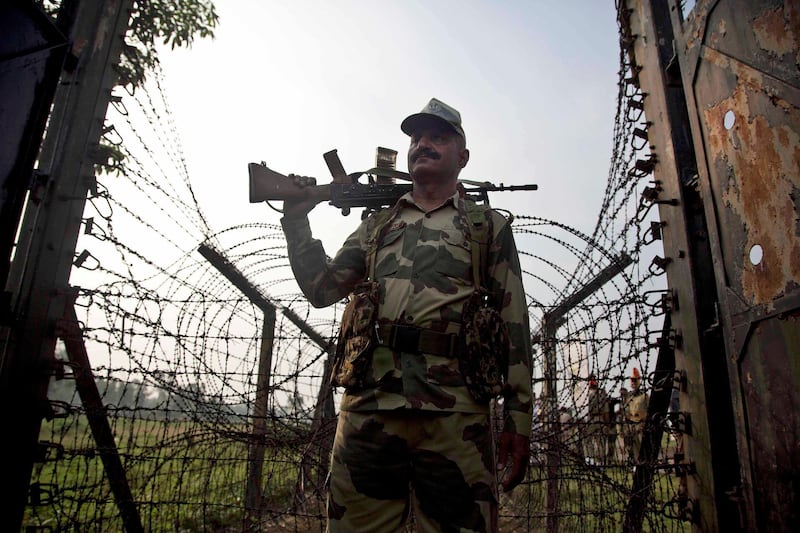“If you had to choose a moment in history to be born,” Barack Obama told an audience in Athens during his final overseas visits as president of the United States in November 2016, “you’d choose now”. Obama’s optimism was out of step with his surroundings. Riot police were busy restraining thousands of Greek protesters as Obama proclaimed confidently that the world had never “been wealthier, better educated, healthier, less violent than it is today”.
It is a message amplified by the Harvard psychologist Steven Pinker in his books The Better Angels of Our Nature (2015) and Enlightenment Now (2018), and there is now a loose consortium of influential academics, pundits and businesspeople known as "New Optimists" dedicated to promoting the proposition that we are living in the best of times. If they are all correct, how do we explain what looks and feels like the world's collective descent into chaos over the past decade-and-a-half?
The optimists overlook the experience of a substantial mass of humanity for whom the world – even after being purged of the ills of the past centuries and endowed with modern technology – remains a forbidding place. The optimists' exaltation of modernity is accompanied by the myth that modernity has created benefits for all. Consider, for instance, the frequently repeated claim by the optimists that we live in the most open age in human history: it presupposes that all humans have access to this open world, when only a relatively small portion do.
The majority are "more divided than ever", as Tim Marshall, who is a contributor to The National, notes in his new book. The pessimism that leaps from the pages of Divided shouldn't be mistaken for the author's attitude. It is, rather, the mood of the world as it stands. In eight chapters on China, the United States, Israel and Palestine, West Asia, India, Africa, Europe and the United Kingdom, Marshall examines the walls – physical, religious, ethnic, psychological – that fence people off or, at times, pen them in.
Everywhere there is evidence of people retreating into narrow identities. Marshall, unlike the western commentators who rushed to pronounce this the Chinese century, is not seduced by the glitz of Shanghai's skyscrapers. His eye is trained on the human cost of China's progress: the disparities generated by it, the exodus from village to city, the loss of individual dignity. Beijing is altering the demographics of Buddhist Tibet, which it violently subsumed in the 1950s, and Muslim Xinjiang by flooding them with Han Chinese. It is in Beijing's ethnic engineering that Marshall espies "the greatest threat to the prospects of long-term prosperity and unity in China".
Looking at India, Marshall contends that the subcontinent has not fully recovered from the invasions of the past millennium. The people on the peripheries continue to be haunted by the division of India to create Pakistan and the subsequent partition of Pakistan to birth Bangladesh. Bengalis in India resent the influx of migrants from Bangladesh because they are mostly Muslim. India has erected state-of-the-art fences on its eastern border. But as vast swathes of Bangladesh are poised to sink into the waters as sea levels rise, where will the climate refugees of the future go?
________________________
Read more:
Review: The End of Loneliness explores how our lives can change in an instant
Review: Chelsea Clinton’s latest book is not promising enough to change history
Review: 'The Land between Two Rivers' painfully conveys the human cost of war
________________________
Marshall's chapter on the European Union is the most powerful. Ever since Britain voted to leave Europe, extraordinary claims have been made for the EU. But if the EU is the ne plus ultra of political co-operation, why did so many people choose to turn away from it? "The EU," Marshall writes, "has never really succeeded in replacing the nation state in the hearts of most Europeans."
The EU hierarchs' revulsion for nationalism doesn't negate the importance many attach to national identity. As Marshall warns in his chapter on Britain, to "dismiss people who enjoyed their relatively homogeneous cultures and who are now unsure of their place in the world merely drives them into the arms of those who would exploit their anxieties – the real bigots".
By magnifying religion and culture as the causes of division, Marshall exposes himself to the charge of advancing a deterministic view of the world. Yet this is where Divided draws its strength from. As Raymond Aron said in response to French intellectuals who sought to blunt Algerian demands for independence with talk of progress under French rule, "it is a denial of the experience of our century to suppose that men will sacrifice their passions to their interests". Marshall can't be faulted for identifying the sources of those passions. He has written frankly about the world. We deny this at our own peril.





